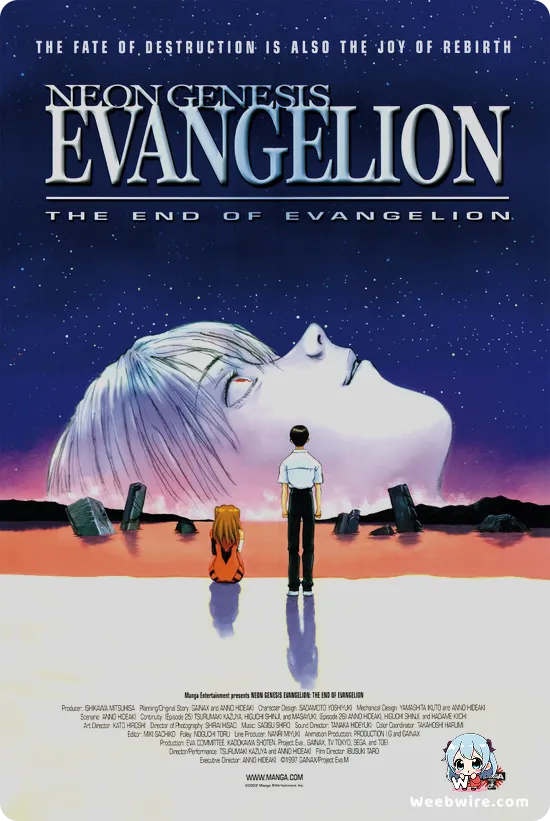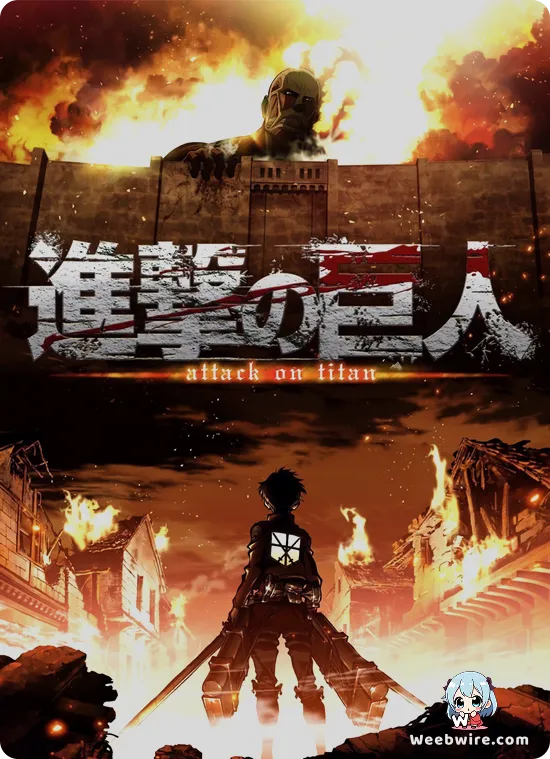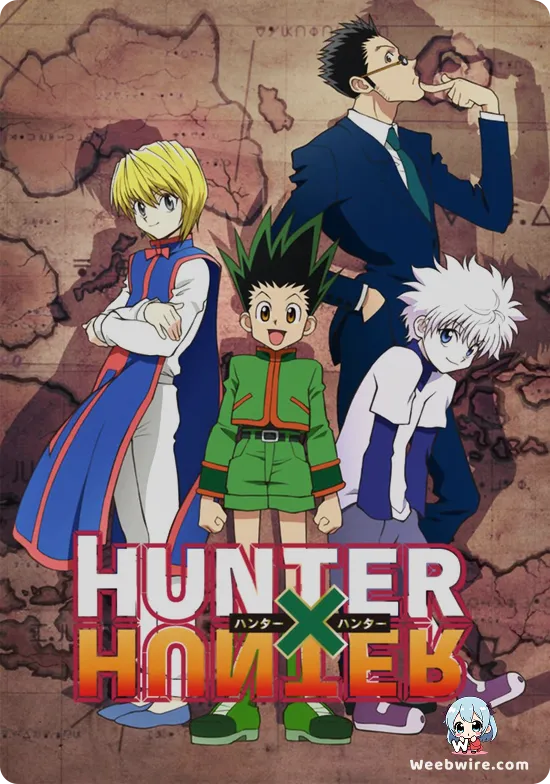

© Gainaxwww.netflix.com
Neon Genesis Evangelion: The End of Evangelion
Overview
Neon Genesis Evangelion: The End of Evangelion is a seminal 1997 anime film from the visionary minds at Gainax, serving as a visceral and emotionally shattering alternate conclusion to the groundbreaking Neon Genesis Evangelion TV series. Plunging viewers back into a bleak, post-apocalyptic future, the narrative re-engages with the profound psychological and philosophical odyssey of its young pilots: the deeply troubled Shinji Ikari, the enigmatic Rei Ayanami, and the fiercely proud Asuka Langley Soryu. These adolescents are forced to synchronize with colossal biomechanical mechas, the Evangelions, to fend off enigmatic existential threats known as Angels. However, the film quickly escalates beyond mere mecha battles. The secretive organization NERV, humanity's last bastion, finds itself under merciless assault by government forces executing the sinister agenda of Seele. This relentless onslaught propels the story towards the cataclysmic Third Impact, an event shrouded in mystery, poised to trigger either a profound human evolution or total annihilation, born from the clash of human will and cosmic forces. At its heart, the film intensely scrutinizes Shinji's crippling inner turmoil and his agonizingly complex relationships, particularly with his emotionally distant father, Gendo Ikari. The journey culminates in a series of breathtakingly surreal, metaphysical battles and an unflinching dive into introspection that challenges the very fabric of reality. With its audacious blend of deep psychological themes, fragmented, dreamlike storytelling, and iconic symbolic visuals, The End of Evangelion transcends its genre, offering not just thrilling action but a profound, often disturbing, meditation on identity, crushing loneliness, and the elusive meaning of existence. Its unparalleled fusion of mecha spectacle, raw human drama, and abstract philosophical inquiry solidifies its status as an undisputed landmark in the annals of anime history, leaving an indelible mark on all who witness its harrowing beauty.
Opinion
The End of Evangelion stands as a monumental, albeit profoundly controversial, masterpiece that delivers a starkly explicit and relentlessly dark conclusion to the original series. Its narrative is a tightrope walk, masterfully balancing breathtakingly intense action sequences with an unsparing, deeply psychological exploration of its characters and a tapestry of rich symbolic motifs. The film's portrayal of Shinji Ikari is particularly noteworthy; he emerges not as a conventional hero, but as a deeply flawed, vulnerable protagonist, grappling with overwhelming feelings of worthlessness and the fundamental human yearning for connection. This unvarnished depiction is both unflinching and empathetic, compelling viewers to confront uncomfortable emotions and profound existential questions about self-identity and belonging. Visually, the animation quality is nothing short of spectacular, especially during the frenetic battle scenes involving the Evangelions and the terrifying Mass Production Units. It seamlessly blends traditional hand-drawn artistry with pioneering early digital effects, creating a surreal and often nightmarish atmosphere that perfectly complements the narrative's bleak tone. While the storytelling is undeniably abstract and frequently challenging, demanding active interpretation and intellectual engagement, it generously rewards those who delve into its layers with a profound experience that explores the nature of pain, the essence of individuality, and the path to acceptance. The voice acting, particularly from Megumi Ogata as Shinji and Yūko Miyamura as Asuka, delivers performances brimming with raw emotion, perfectly capturing the characters' despair, rage, and fleeting moments of hope, elevating the emotional impact of every scene. The film's audacious pacing, shifting between frantic action and quiet, introspective dread, keeps the audience perpetually on edge. Its unparalleled capacity to stimulate enduring discussions regarding mental health, human isolation, and the very philosophy of being distinguishes it far beyond the confines of typical mecha anime. However, its uncompromisingly bleak tone and notoriously ambiguous ending are points of strong polarization, eliciting both fervent praise and deep frustration. Despite this, it remains an absolutely essential work, whose profound influence on anime narrative storytelling and artistic ambition continues to resonate powerfully with audiences seeking unparalleled depth and artistry in animation.
Characters
Asuka Langley Soryu
Voice: Yūko Miyamura
Shinji Ikari
Voice: Megumi Ogata
Rei Ayanami
Voice: Megumi Hayashibara
Gendo Ikari
Voice: Fumihiko Tachiki
Misato Katsuragi
Voice: Kotono Mitsuishi
Credits
Studio
Gainax
Cover Art
Hideaki Anno and Gainax art team
Publisher
Kadokawa Shoten (original manga publisher)
Producers
Gainax, Production I.G, King Records
Episodes
Season 1
1 episodesInformation
Genres
Related Anime

Fullmetal Alchemist: Brotherhood

Haikyu!!

Attack on Titan

Hunter x Hunter Story, Characters, Revival News, & Similar Anime

Gintama.: Slip Arc
